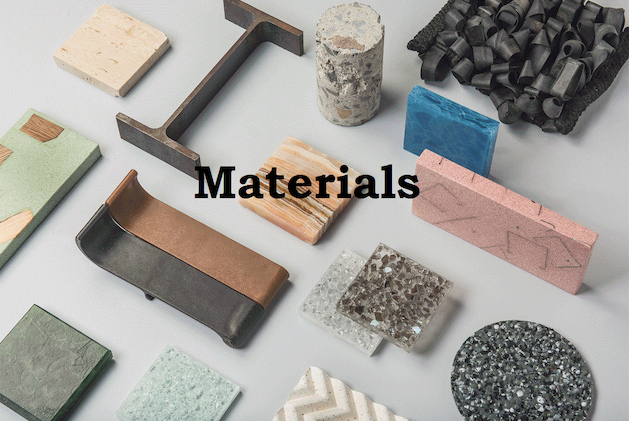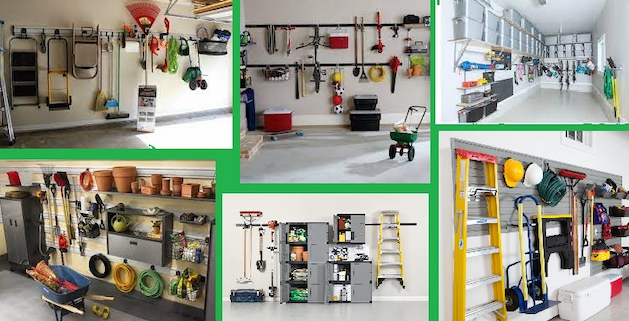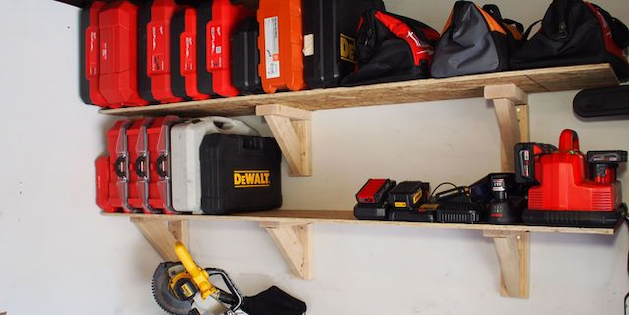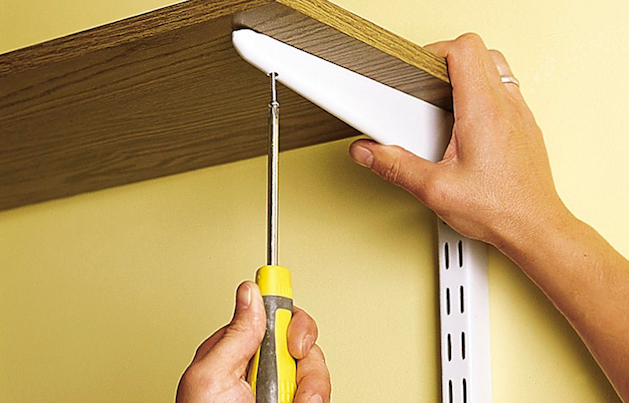A well-organised workplace is key to efficiency and higher productivity. Not only does it affect how your company is structured, but also how it utilises physical space. If you’re a small business owner, you’ll know the cost and limitations of not having enough floor space. Making the most of what you’ve got, with a few functional additions, like practical shelving solutions, can make a whole lot of difference. Shelves provide a number of benefits, whether it’s your office, workshop, or home garage. They make the most of available space, while also freeing up unwanted clutter. Your goods are easy and quick to access, meaning better all-around safety and an improved workflow. Heavier and bulkier items will be safely stored in a visible place, yet not get in the way. You’ll have a clean, functional, safe and well-organised space to work in.
Shelving Materials

Shelves are made of different materials or a combination of materials, depending on your setting, what you are storing, and your preferred look. Wood is a good option for home or small retail environments, as having a classic, rustic look that goes well with other furnishings. Heavy duty garage shelves of different metals, wire mesh, or reinforced plastics are more common for large commercial or industrial use.
Wooden shelves can be made either of softwoods like pine, hardwood like oak, or processed plywood. For larger, heavier objects and better durability go with coated hardwood planks and metal frames.
Solid metal shelves offer the best carrying capacity for items with more weight. Steel is the material of choice here, often with zinc coating for rust protection and potential chemical spills. Shelves of solid metal are available in different sizes and configurations.
Steel wire meshing is a lightweight alternative to solid metal shelving, ideal for smaller items like boxes, bins, or tools. The meshing doesn’t collect dust or liquids and is easily cleaned. Shelves with adjustable metal rails give you the flexibility of storing objects of different sizes within a single unit. You’ll also see reinforced plastic mesh shelves in places like industrial kitchens or linen rooms.
Types of Shelves

Whether they are attached to a fixed surface or can function as standalone units, shelves can be either freestanding or mounted. Freestanding shelves provide mobility and flexibility. They can store your inventory in one place, or be moved around with ease within the workplace. You can get freestanding shelves in different materials, like steel frames and wooden or mesh shelf levels, or heavy-duty variants made entirely of metal. Most can be optioned with rollers for easy movement and with adjustable shelf heights, giving you the flexibility of storing and moving items of different sizes. The only downside is that they take up a bit more space than mounted shelves. For storing items outdoors, or say in underground parking spaces, look for storing cages. They are made of wire mesh, come with one or more shelves, and fit on pallet racking, meaning they’re easy to transport.
Shelves can also be mounted into walls and ceilings. Evenly spaced brackets hold the steel shelving plates or metal mesh in place. Wall-mounted shelves are generally more durable and can take higher loads than freestanding shelves. They can be installed along the entire length of the wall to provide a flowing workspace. This is good for an organised, flush look to your shop while also maximising storage space. For spaces with lower roof heights and where wall mounts take up too much space, a ceiling-mounted shelf fixed with brackets to the ceiling may be the solution you need. They can be positioned to store any tools, parts or other items at your desired height.
Dimensions and Storing Capacity

Shelves can have fixed dimensions or be customised according to your needs. Dimensions for stock freestanding and wall-mounted shelves range from 1800 to 2400mm in height, 900 to 2400mm in width, and from 300 to 600mm in depth. Height and width won’t be an issue for most buyers, but depth will determine whether you can fit storage bins and stacking pallets, or bulkier items like tyres. Measure the available space, then go for the stock shelf with the best fit. Of course, you can also custom build a shelf to suit your space. Or get a compacting shelf for maximum flexibility.
Loading capacity will depend on the type of shelf and the material. Solid steel wall mounted shelves are best suited for heavy-duty applications, with some shelf levels able to carry up to 500 kilos each. Mesh shelves of plastic or wire are good for 125 kilos per level. Consider the weight of the items you’ll be shelving.
Installing Shelves

Freestanding shelves only need to be assembled and are ready to start stacking your stuff. Mounting wall and ceiling shelves require a little more work. First, check for any wiring or plumbing along the wall you intend to mount the shelf on since you’ll need to drill studs into the walls. This is obviously for safety and avoiding any costly repairs. Place the studs at even distances so that the shelf is stable and the weight is evenly distributed. Then, attach the brackets that will hold the shelves. Adjustable shelves and many ceiling-mounted shelves have rails with drilled holes, so you can adjust the height of the brackets. The type of wall will determine the weight it can carry. Concrete and brick walls will understandably have better carrying capacity than plasterboard, as plasterboard is also more prone to damage.
Buying Tips

You can find shelves of different designs and materials for home use in all home décor stores. For industrial and heavy-duty shelving look to stores specialising in storage solutions. They’ll have a wide range of stock shelves and additional storage products like tool cabinets, workbenches and racking storage kits. Here, you can also get a custom shelf built to the measurements you want. Many stores will have staff that can install your shelf if you don’t want to do the work yourself or if you want a professional fit. Consider the items you’ll be storing, the type of shelf you need, and where it will feature in your business.


